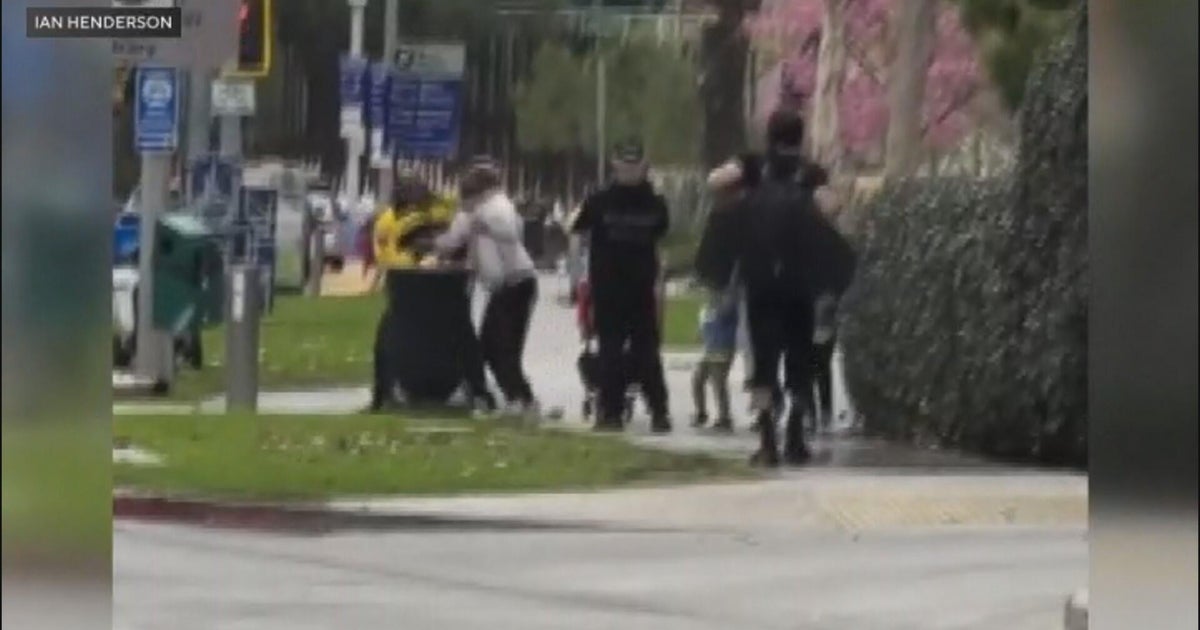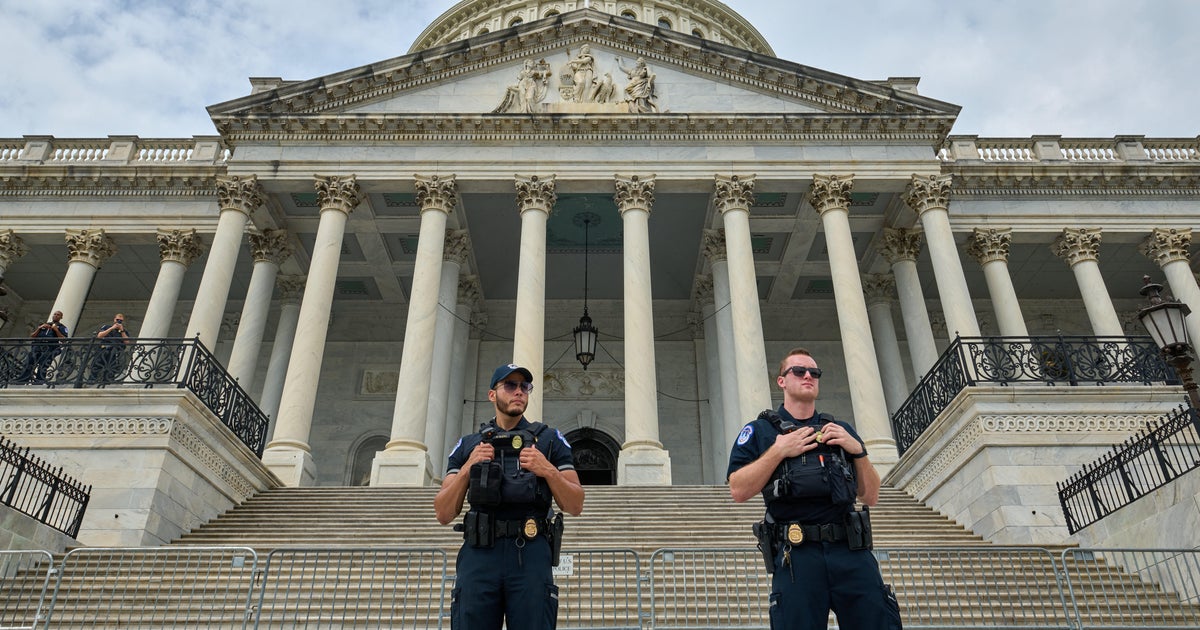Transcript: National security adviser John Bolton on "Face the Nation," July 1, 2018
The following is a transcript of the interview with national security adviser John Bolton that aired Sunday, July 1, 2018, on "Face the Nation."
MARGARET BRENNAN: Good morning and welcome to "Face the Nation." We have a lot to talk about today on the Supreme Court vacancy but we want to begin on foreign policy with President Trump's national security adviser Ambassador John Bolton. Ambassador, it's great to have you back on the program.
AMBASSADOR JOHN BOLTON Glad to be with you.
MARGARET BRENNAN: The Washington Post is reporting that U.S. intelligence has new evidence that North Korea is trying to obscure and hide the number of missiles, facilities and other parts of its nuclear program. Have you seen any evidence that they're actually dismantling their nuclear infrastructure?
AMBASSADOR BOLTON: Well I don't want to comment on that specific report. I-I don't really don't want to comment on anything related to intelligence I'd- I'd rather discuss it as a more general proposition. We're very well aware of North Korea's patterns of behavior over decades of negotiating with the United States. We know exactly what the risks are of them using negotiations to drag out the length of time they have to continue their nuclear chemical biological weapons programs and ballistic missiles. President would like to see these discussions move promptly to get a resolution. This has been the advice that China's leaders Xi Jinping has given us as well. So we're going to try and proceed to implement what the two leaders agreed to in Singapore, but rather than have a-a series of reports things are going better things are not going well, they are concealing this, they're not concealing that. Really it doesn't serve the purpose of advancing the negotiations. But there's not any-any starry eyed feeling among the group doing this that we're well- well, well aware of what the North Koreans have done in the past.
MARGARET BRENNAN: How quickly will North Korea turn over its actual arsenal? I mean are they using diplomacy as a cover?
AMBASSADOR BOLTON: Well certainly that's what they've done before. But the Kim Jong-un was very emphatic several times in Singapore he was different from prior regimes. Now we'll let their actions speak for themselves.
MARGARET BRENNAN: And you were emphatic that you were different here as an administration, that the weapons are going to be handed over before concessions are made when you were with us last time.
AMBASSADOR BOLTON: Right. And we have developed a program, I'm sure that the Secretary of State Mike Pompeo will be discussing this with the North Koreans in the near future about really how to dismantle all of their WMD and ballistic missile programs in a year if they have the strategic decision already made to do that and they're cooperative we can move very quickly and it's to North Korea's advantage to see these programs dismantled very quickly because then the elimination of sanctions aid by South Korea and Japan and others can all begin to flow.
MARGARET BRENNAN: Within a year?
AMBASSADOR BOLTON: Well what our experts have-have devised is a program that with North Korean cooperation with full disclosure of all of their chemical and biological nuclear programs ballistic missile sites--
MARGARET BRENNAN: That hasn't happened yet?
AMBASSADOR BOLTON: We can- it has not. We can get physically we would be able to dismantle the overwhelming bulk of their programs within a year.
MARGARET BRENNAN: Significant. I want to ask you though about the trip you just made to Moscow where you met face to face yourself with Vladimir Putin to set up this July summit with President Trump. What specific changes in Russian foreign policy are you going to ask him for? What is the goal?
AMBASSADOR BOLTON: Well the goal of this meeting really is for the two leaders to have a chance to sit down not in the context of some larger multilateral meeting but just the two of them to go over what's on their mind about a whole range of issues. President Trump has just said in the past week he's going to raise things like Syria, like Ukraine, like the election meddling issue really the whole range of issues between us. And I think that in the president's mind this is very important because it gives him an opportunity to size up Vladimir Putin to see where there are areas where we might make progress together and where there are areas where we may not.
MARGARET BRENNAN: But right now Russia is blanket bombing southern Syria. That violates the last agreement Vladimir Putin made with President Trump. Why would he believe that he's in any way trustworthy?
AMBASSADOR BOLTON: Well we'll see what happens when the two of them get together. There are possibilities for doing a larger negotiation on helping to get Iranian forces out of Syria and back into Iran which would be a significant step forward -
MARGARET BRENNAN: Use force to do so?
AMBASSADOR BOLTON: to do so to have an agreement with Russia if that's possible. This has been something that's been going on now for nearly seven years this conflict in Syria. But the Iranian presence now across Iraq and Syria really reaching into Lebanon and their connection with Hezbollah which has been an Iranian subsidiary from the outset
MARGARET BRENNAN: And they're declaring victory. Has Assad won the war?
AMBASSADOR BOLTON: Well I don't think Assad is the strategic issue. I think Iran is the strategic issue. It's not just their continuing nuclear weapons program it's their massive support for international terrorism and their conventional forces in the Middle East and I would say there - this is something that the two presidents will want to discuss at length because I think President Trump's decision to withdraw from the misbegotten Iran nuclear deal, reimpose our sanctions begin to put much more pressure on Iran is having an effect on their decision making not just on the nuclear issue but on these efforts to extend Iranian influence around the region.
MARGARET BRENNAN: And you think Russia can be a partner?
AMBASSADOR BOLTON: We'll see. I think the Russians are always saying to us they want to cooperate on international terrorism -
MARGARET BRENNAN: They've been saying that for years -
AMBASSADOR BOLTON: They certainly have in some - in some areas going back to the Bush administration, we did cooperate. On Iran which has been the largest financier of international terrorism around the world. I think that's where the real issue is right now.
MARGARET BRENNAN: I want to ask you about the Director of National Intelligence Dan Coats who said very clearly in June Russia is actively targeting American society in ways that could affect our midterm elections. Did you tell Putin and his associates to knock it off.
AMBASSADOR BOLTON: I had meetings all throughout the day on Wednesday including with President Putin and his foreign minister and his defense minister and his diplomatic adviser for about an hour and a half . That the election meddling issue was definitely something we talked about. And I thought it was significant -
MARGARET BRENNAN: Now? Meddling now?
AMBASSADOR BOLTON: Yes absolutely meddling meddling in the 2016 election. And our concern about what they're doing in the 2018 election and what President Putin said through a translator of course but what he said was there was no meddling in 2016 by the Russian state.
MARGARET BRENNAN: Very little happens without Vladimir Putin's OK.
AMBASSADOR BOLTON: Well I think that's that's an interesting statement. I think it's worth pursuing I'm sure the president will want to pursue it.
MARGARET BRENNAN: What do you think he means?
AMBASSADOR BOLTON: Well I don't know that. I didn't have an unlimited amount of time with him. But that's very different from saying my view that there was no Russian meddling at all.
MARGARET BRENNAN: So you see that as some admission on his part?
AMBASSADOR BOLTON: I think I think the president will have to pursue that further and I think that's one reason why he and President Putin need to have this conversation as much as I enjoy speaking with my counterpart in Russia with the foreign minister with others is that Vladimir Putin is the one who makes the decisions and I think our leader needs to speak with him
MARGARET BRENNAN: On Air Force One this week, President Trump when he was speaking to reporters seemed to leave the door open to recognizing Russia's annexation of Crimea saying we'll have to see what happens when the issue comes up in the meeting. Is the U.S. endorsing the idea that international borders can be redrawn by force. Is this actually a topic?
AMBASSADOR BOLTON: No that's not the position of the United States. But I think -
MARGARET BRENNAN: This is why it was newsworthy when he said it.
AMBASSADOR BOLTON: Well I don't know that that's what he said. I think he's I think the president often says we'll see to show that he's willing to talk to foreign leaders about a range of issues and hear their perspective. President Putin was pretty clear with me about it and my response was we're going to have to agree to disagree on Ukraine.
MARGARET BRENNAN: But that's not up for negotiation.
AMBASSADOR BOLTON: That's not the position of the United States.
MARGARET BRENNAN: Right. But saying we'll see suggests might be.
AMBASSADOR BOLTON: Well we'll see.
MARGARET BRENNAN: Well that's shocking for our European allies -
AMBASSADOR BOLTON: I don't I don't think it's shocking at all. As I've said the position of the United States is clear on this.
MARGARET BRENNAN: Right but is that open to changing as the United States position if the president saying the door is open.
AMBASSADOR BOLTON: The president makes the policy. I don't make policy.
MARGARET BRENNAN: What is so deeply worrying to so many of our European allies particularly going into this next NATO meeting, are comments like that. Things that show some kind of crack in the military alliance of NATO that is -
AMBASSADOR BOLTON: I don't -
MARGARET BRENNAN: The president is looking to be friendlier with adversaries than out allies.
AMBASSADOR BOLTON: I think that's nonsense really. I think that's nonsense. I think what the president has said to the NATO allies, that has caused them concern is that he wants them to live up to the commitment they themselves made during the Obama administration -
MARGARET BRENNAN: In terms of spending.
AMBASSADOR BOLTON: Well it's not just spending. But let me make the point that they committed to spend 2 percent of their gross domestic product on defense matters. It's not just a matter of dollars and cents. This is a collective defense organization. NATO's the most successful political military alliance in history. But if core members including Germany aren't willing to spend what's necessary for their own self-defense, what are we to make of that?
MARGARET BRENNAN: But U.S. intelligence believes Russia is actively trying to undermine NATO. You understand why the president's comments spending aside, is undermining the European alliance -
AMBASSADOR BOLTON: Don't say spending aside, don't say spending aside. What is the depth of European commitment -
MARGARET BRENNAN: You are correct that past presidents have also said that is deeply troubling and they want to see more spending.
AMBASSADOR BOLTON: Barack Obama -
MARGARET BRENNAN: Exactly
AMBASSADOR BOLTON: - in fact said that free riders aggravated him.
MARGARET BRENNAN: Exactly.
AMBASSADOR BOLTON: So I don't I don't think it's fair -
MARGARET BRENNAN: But when the President -
AMBASSADOR BOLTON: - to criticize President Trump for simply saying what President Obama said earlier.
MARGARET BRENNAN: Sure. But in terms of redrawing international borders like with Crimea leaving the door open to that saying things that undermine the alliance in that particular specific way are very unique and troubling.
AMBASSADOR BOLTON: I don't think that's what that comment means. There'll be a lot of discussion. There was discussion this past week at the European Council about the EU position on Ukraine. And this is this is a subject where there's been disagreement among the Europeans as well. But I want to come back to the question of NATO 's effectiveness. The president wants a strong NATO. If you think Russia's a threat, ask yourself this question, why is Germany spending less than 1.2 percent of its GNP. So when people talk about undermining the NATO alliance you should look at those who are carrying out steps that make NATO less effective militarily.
MARGARET BRENNAN: We will be watching for that. At that summit with NATO and Vladimir Putin. Thank you very much--
AMBASSADOR BOLTON: Glad to be here.
MARGARET BRENNAN: --Ambassador for being on the show.



